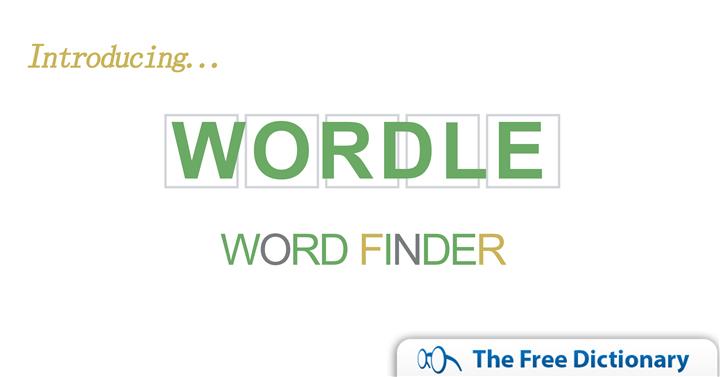free – Wiktionary, the free dictionary In the vast expanse of the digital age, where information is not just power but also a currency, access to knowledge has become more critical than ever before. The internet has revolutionized the way we seek and acquire information, and platforms like Wikipedia have played a significant role in democratizing knowledge. But when it comes to words, definitions, and linguistic nuances, another resource stands out – Wiktionary. This article explores the world of Wiktionary, the free dictionary, and delves into its significance, evolution, and impact on language and learning.
The Genesis of Wiktionary
free – Wiktionary, the free dictionary Wiktionary, often referred to as the “free dictionary,” is a sister project of Wikipedia and part of the Wikimedia Foundation’s family of projects. It was founded in December 2002 by Daniel Alston and was officially launched on December 12, 2002. The primary goal of Wiktionary was to create a comprehensive, collaborative, and freely accessible dictionary that would serve as a valuable linguistic resource for people all around the world.
The structure of Wiktionary is similar to that of Wikipedia, with a community of volunteers working together to create, edit, and maintain its content. This collaborative approach has allowed Wiktionary to grow rapidly and become one of the most extensive dictionaries available online.

A World of Words
free – Wiktionary, the free dictionary At its core, Wiktionary is a vast repository of words and their meanings. It covers a wide range of languages, from major world languages like English, Spanish, and Chinese to lesser-known and endangered languages. This inclusivity is one of Wiktionary’s strengths, as it provides a platform for the preservation and documentation of linguistic diversity.
must read=
trails carolina horror stories
trails wilderness program death
Each entry in Wiktionary typically includes the following information:
- Word Definition: A concise explanation of the word’s meaning, often accompanied by example sentences and usage notes.
- Pronunciation: Information on how to pronounce the word, including audio recordings where available.
- Etymology: The word’s origin, history, and any related or derived words.
- Translations: Translations of the word into other languages, aiding in cross-linguistic understanding.
- Synonyms and Antonyms: Lists of words with similar or opposite meanings.
- Usage Examples: Real-world sentences illustrating how the word is used in context.
- Related Terms: Links to other words or concepts related to the entry.
Wiktionary’s Impact
- Accessibility: Perhaps the most significant impact of Wiktionary is its commitment to free access to knowledge. Unlike many commercial dictionaries, Wiktionary is freely available to anyone with an internet connection. This openness ensures that people from all walks of life, regardless of their economic status or location, can access information about words and languages.
- Linguistic Diversity: Wiktionary’s extensive coverage of languages, including those that are often underrepresented in traditional dictionaries, promotes linguistic diversity and aids in the preservation of endangered languages. It serves as a valuable resource for linguists, language learners, and communities striving to document their languages.
- Learning Resource: Wiktionary is a valuable tool for language learners and educators. Its detailed entries, pronunciation guides, and example sentences make it an ideal companion for those studying a new language. Additionally, its collaborative nature allows language enthusiasts to contribute and share their expertise.
- Cultural Exchange: Through its multilingual entries and translations, Wiktionary facilitates cross-cultural communication and understanding. It helps bridge language barriers and promotes a sense of global interconnectedness.
- Evolution of Language: As a living dictionary, Wiktionary captures the evolving nature of languages. It documents new words, changes in meaning, and the influence of culture on language. Linguists and researchers can analyze these trends to gain insights into language evolution.
Challenges and Criticisms
While Wiktionary has made significant strides in democratizing access to language information, it is not without its challenges and criticisms. Some common concerns include:
- Quality Control: Because anyone can edit Wiktionary, there is a risk of inaccuracies and vandalism. However, the Wiktionary community actively monitors and polices the content to maintain its quality.
- Lack of Expertise: Some argue that Wiktionary entries may lack the depth and expertise found in traditional dictionaries. However, the collaborative nature of Wiktionary means that experts in various fields can contribute their knowledge.
- Incomplete Coverage: While Wiktionary aims to cover as many languages as possible, there are still gaps in its coverage, particularly for less widely spoken languages.

Conclusion
In the digital age, the concept of free access to knowledge is more important than ever, and Wiktionary, the free dictionary, embodies this principle. It has become a valuable resource for language enthusiasts, learners, linguists, and anyone curious about the richness of languages. Wiktionary’s impact extends beyond definitions; it fosters linguistic diversity, promotes cross-cultural understanding, and documents the ever-evolving nature of language.
As we continue to rely on digital resources for information and education, platforms like Wiktionary remind us of the power of collaboration and the importance of making knowledge freely accessible to all. In a world where words shape our thoughts and actions, the free dictionary stands as a testament to the boundless potential of the internet to connect and empower us through language.









